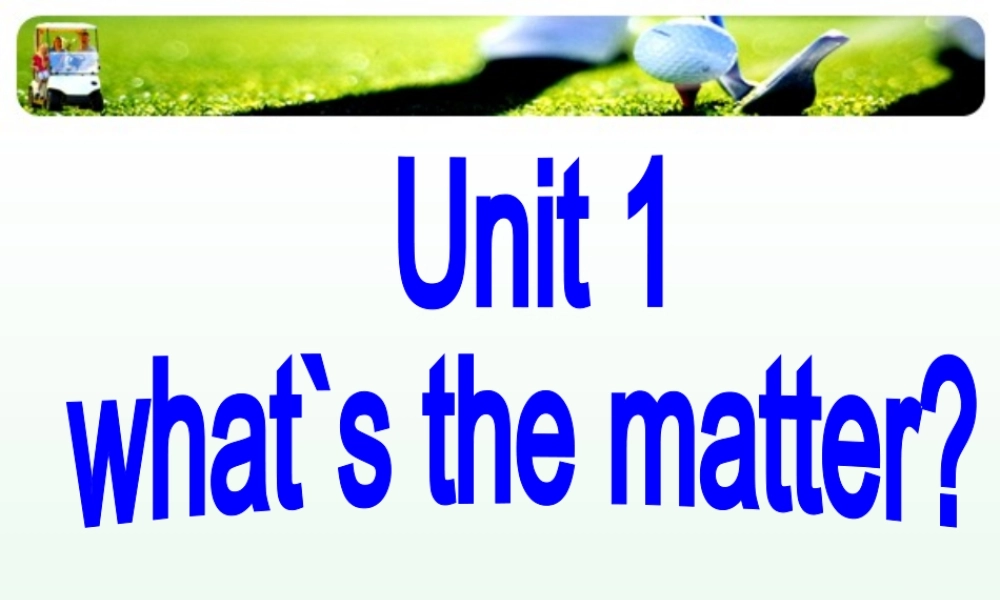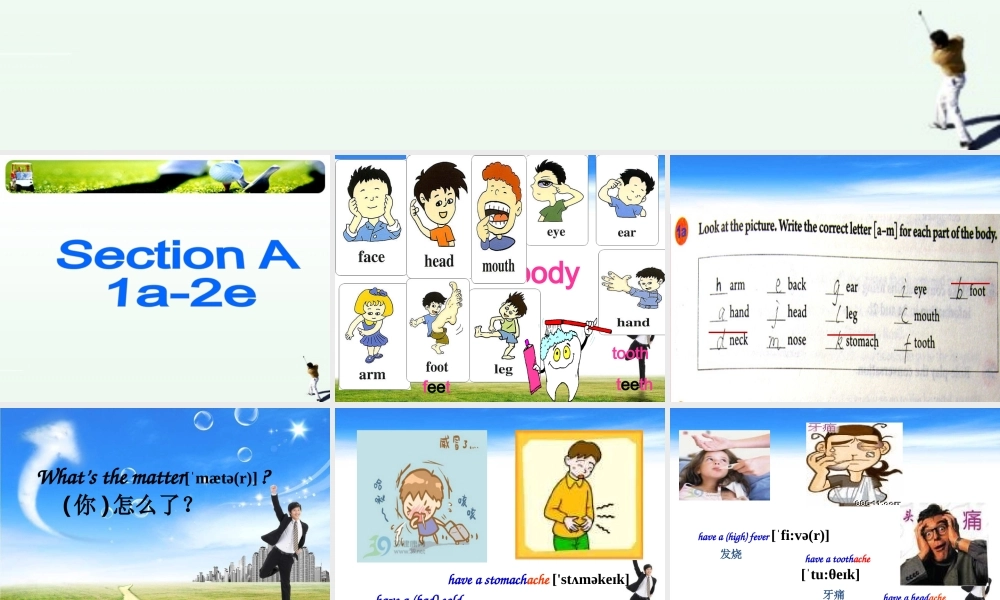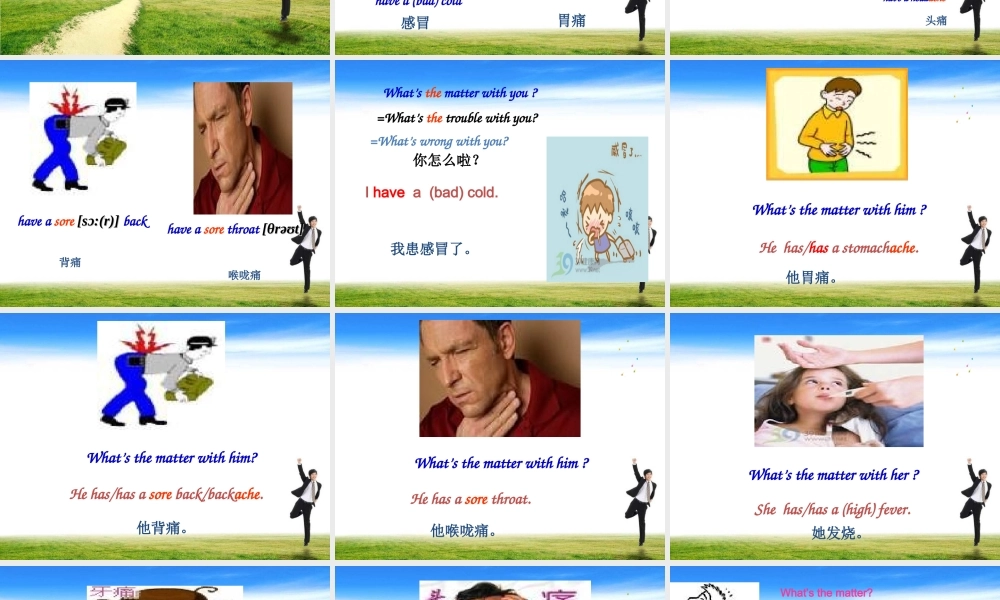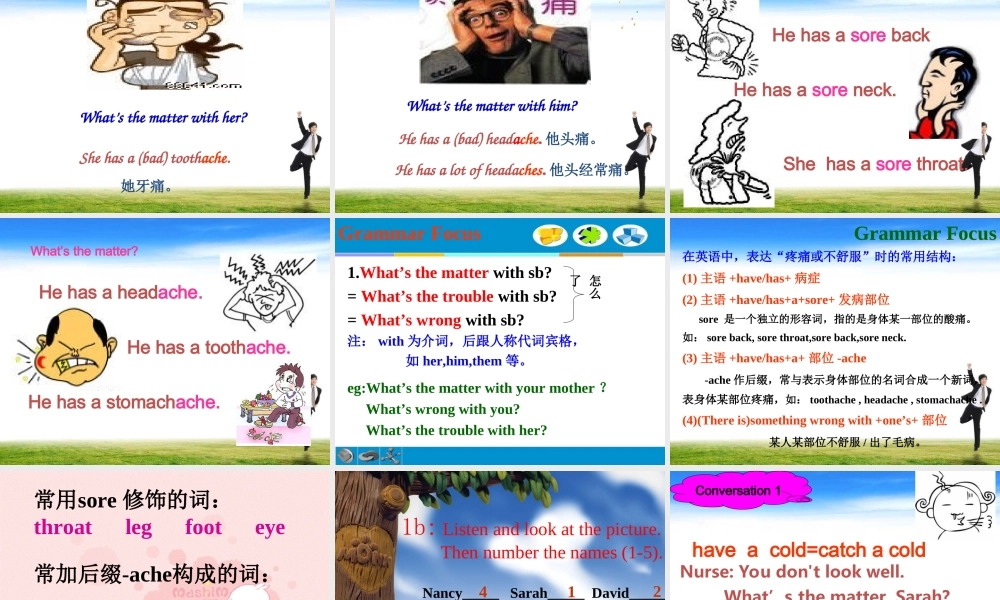bodyfeettoothteethWhat’s the matter[ˈmætə(r)] ? (你 )怎么了?have a (bad) coldhave a stomachache ['stʌməkeɪk]感冒胃痛 have a toothache [ˈtu:θeɪk] have a headachehave a (high) fever [ˈfi:və(r)] 发烧牙痛头痛have a sore [sɔ:(r)][sɔ:(r)] back have a sore throat [θrəʊt][θrəʊt]背痛喉咙痛I have a (bad) cold.What’s the matter with you ? =What’s the trouble with you?=What’s wrong with you?你怎么啦?我患感冒了。What’s the matter with him ?He has/has a stomachache.他胃痛。What’s the matter with him?He has/has a sore back/backache.他背痛。What’s the matter with him ?He has a sore throat.他喉咙痛。She has/has a (high) fever.What’s the matter with her ?她发烧。She has a (bad) toothache.What’s the matter with her?她牙痛。He has a (bad) headache. 他头痛。What’s the matter with him?He has a lot of headaches. 他头经常痛。He has a sore backHe has a sore neck.She has a sore throat.What’s the matter?What’s the matter?He has a headache.He has a toothache.He has a stomachache.Grammar Focus1.What’s the matter with sb?= What’s the trouble with sb?= What’s wrong with sb?注: with 为介词,后跟人称代词宾格, 如 her,him,them 等。eg:What’s the matter with your mother ? What’s wrong with you? What’s the trouble with her?怎么了Grammar Focus在英语中,表达“疼痛或不舒服”时的常用结构:(1) 主语 +have/has+ 病症(2) 主语 +have/has+a+sore+ 发病部位 sore 是一个独立的形容词,指的是身体某一部位的酸痛。如: sore back, sore throat,sore back,sore neck.(3) 主语 +have/has+a+ 部位 -ache -ache 作后缀,常与表示身体部位的名词合成一个新词,表身体某部位疼痛,如: toothache , headache , stomachache .(4)(There is)something wrong with +one’s+ 部位 某人某部位不舒服 / 出了毛病。常用sore 修饰的词:throat leg foot eye常加后缀-ache构成的词:head tooth stomach ear两者都可用的词:bac...




